Mere Way: Concerns raised over upgrade of rural Roman road
- Published
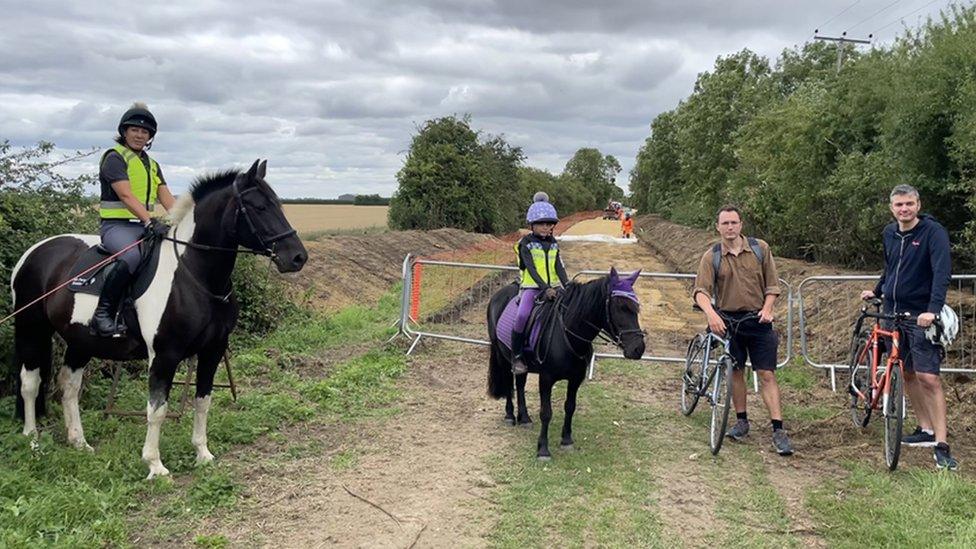
Camcycle was critical of the amount of trees and hedgerow that would be lost along the path
A developer has come under fire as it transforms an ancient "green lane" into a four-metre wide surfaced path.
Mere Way, which connects Cambridge and Waterbeach New Town, forms part of the Roman road known as Akeman Street.
Cycling group Camcycle, and the British Horse Society, said "too much of the natural setting is being compromised".
The developer Urban & Civic said a balance had been struck to preserve its archaeological value and creating something fit for purpose.
Mere Way, a grassy track used by horse riders, walkers and cyclists, is being "upgraded" to serve the development of 11,000 new homes at Waterbeach.
Work to widen and resurface it began on 29 May and was expected to be completed by November.
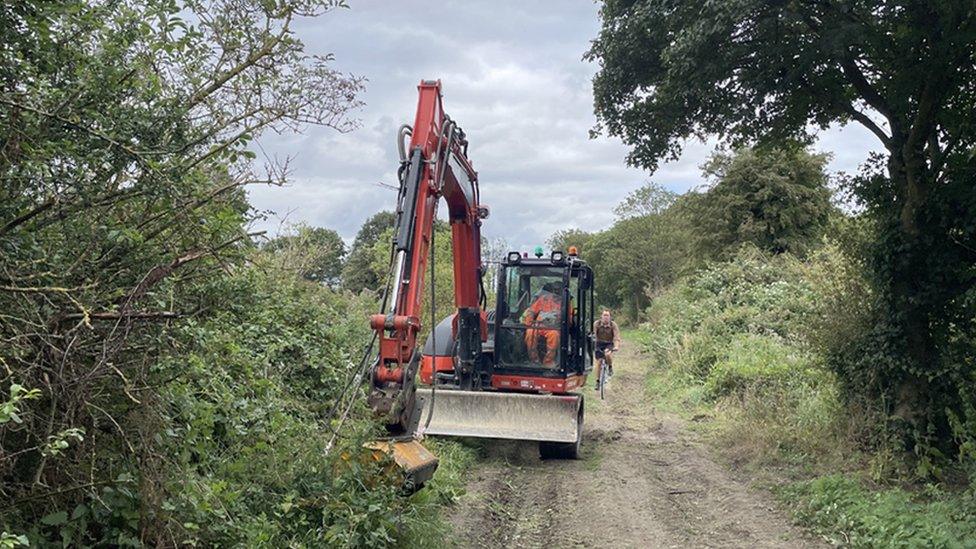
Construction of the widened route began on 29 May and was due to be completed in November
In a joint letter to the developer and Cambridgeshire County Council, which approved the scheme, the two charities called for "flexibility and pragmatism" as well as "thoughtful consideration of the historic setting and foresight for future generations".
"Failing to do this while continuing with a highway-centric approach will result in the loss of a prized local path and the installation of a substandard replacement that remains unsuitable for many non-motorised users and does not meet its potential as a high-quality route," the letter added.
Alan James, chairman of the Cambridgeshire branch of CPRE the Countryside Charity, also raised concerns, and claimed a full archaeological investigation had not been carried out.
"These old routes out into the fen have been used for thousands of years and therefore there could be important artefacts," he said.
"Some of these old ditches also contain very rare plants. It seems just to be a rush to get on with this work.
"We would like to see a halt for the time being and some discussion with the horse riders, farmers, cyclists and us as to the best way of doing this work."
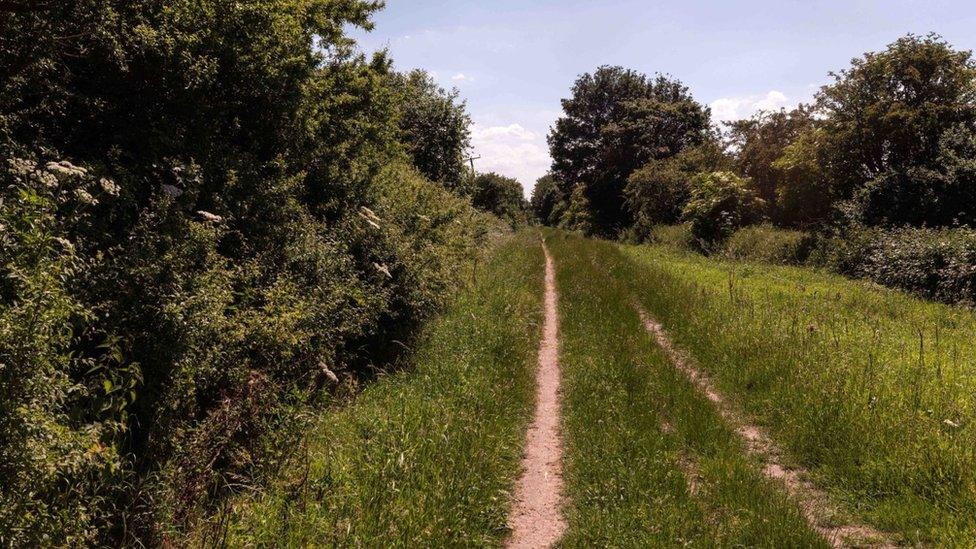
Mere Way is used by horse riders, cyclists and pedestrians and connects Cambridge and Waterbeach New Town to the north of the city
Rebecca Britton, from Urban & Civic, said it was important to "forge a connection" between its historic use and the area's modern needs and the company had been advised by an ecology team.
"This is much about recreating a fantastic historic route but also making it fit for purpose for the future for the whole of Cambridgeshire," she said.
"Its history is really important. There has been an enormous amount of archaeological investigation along that Mere Way route. It has been carefully designed and worked through to preserve the archaeology.
"It's a tricky route to get that balance right, but we do feel this is the best one and it has been approved for that reason."

Find BBC News: East of England on Facebook, external and Instagram, external. If you have a story suggestion email eastofenglandnews@bbc.co.uk or get in touch via WhatsApp on 0800 169 1830
Related topics
- Published17 June 2023
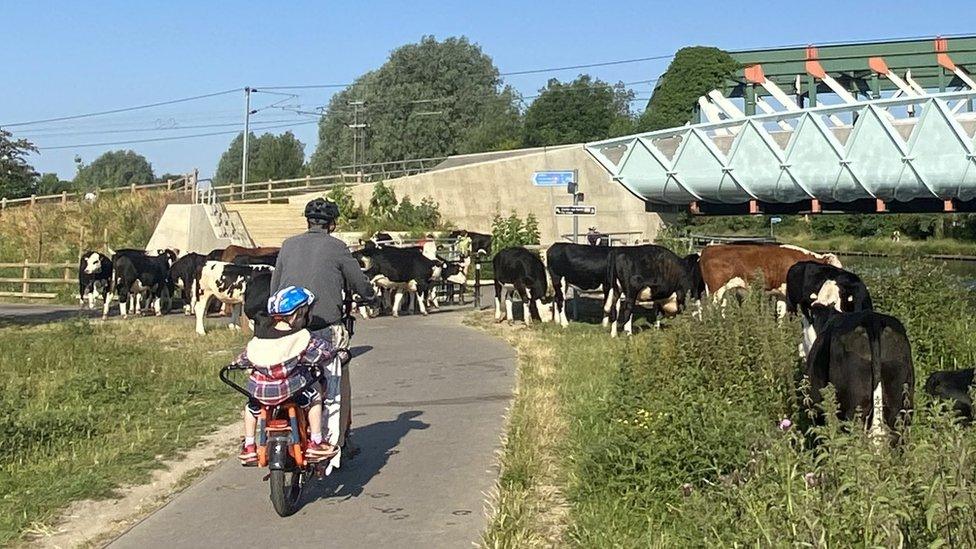
- Published2 June 2023
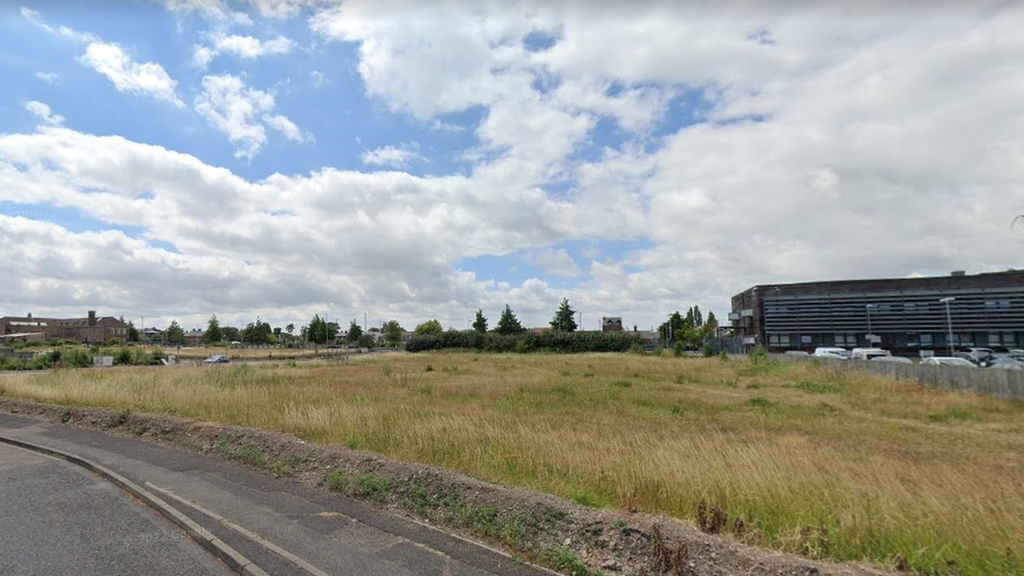
- Published26 April 2023
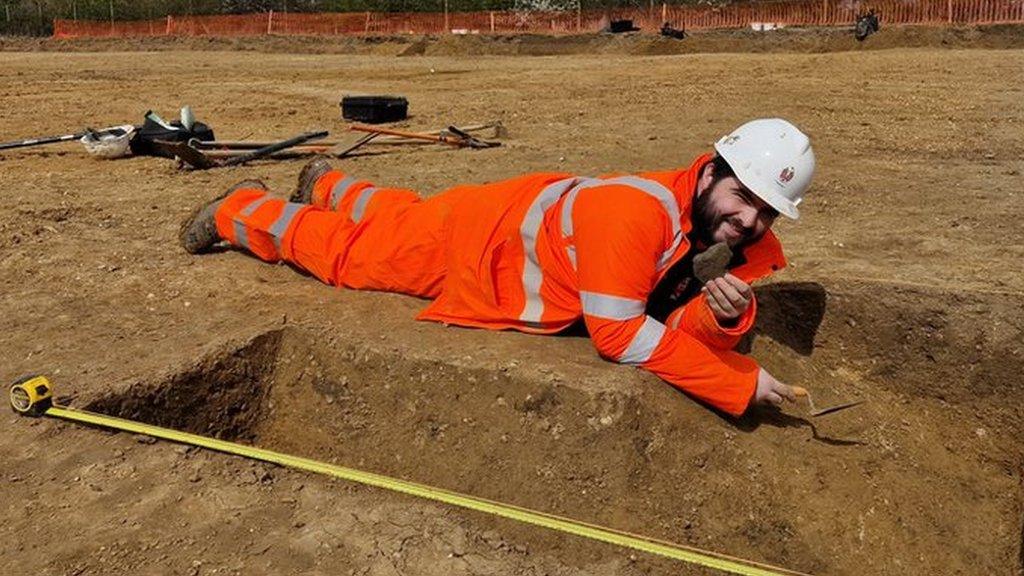
- Published2 March 2022
